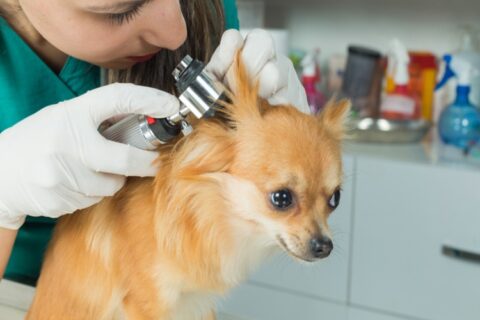Signs Your Pet Has Allergies

When most people think of pet allergies, they think of people who experience reactions to pet dander. In reality, your pets can suffer the same kinds of symptoms when they are exposed to irritants. Unfortunately, the symptoms of allergies in animals are easy to miss if you’re not sure what to look for, which means some pets for an extended period of time before going to the animal hospital for treatment. If your pet experiences these symptoms, consider making an appointment at a vet clinic in Campbell for care.
Itchy Skin
Does your animal consistently chew his or her paws, lick his or her sides, or rub his or her face on the carpet? He or she could be suffering from itchy, inflamed skin caused by allergies. These kinds of allergies are similar to what humans suffer in the fall and spring from ragweed and pollen. Sometimes, pets with these kinds of allergies develop scratches on their skin from itching and have repeated hot spots and ear infections. Sneezing and coughing are also common. Your veterinarian may recommend more frequent bathing with hypoallergenic shampoo to reduce this irritation. In more severe cases, anti-inflammatory therapy and hyposensitization injections may offer relief.
Digestive Problems
When animals have a food allergy, they are likely to experience digestive problems. Typically, allergy-associated problems cause increased bowel movements and soft stools, in contrast with food intolerances, which cause diarrhea and vomiting. In addition to changes in bowel habits, food allergies can also cause itchy skin and persistent ear infections. Your veterinarian may recommend that you eliminate various elements of your pet’s diet in stages to try to isolate the irritant so you can make adjustments accordingly.
Hair Loss
Skin irritation caused by allergies can eventually lead to hair loss, especially on skin that develops red bumps, crust, or scales. This irritation is made worse when your pet licks and chews. Hair loss is more common with chronic contact allergies, such as those caused by reactions to carpet, plastic, or cleaning agents and by flea allergies. Flea prevention medicine available at Reed Animal Hospital’s online store can help.

